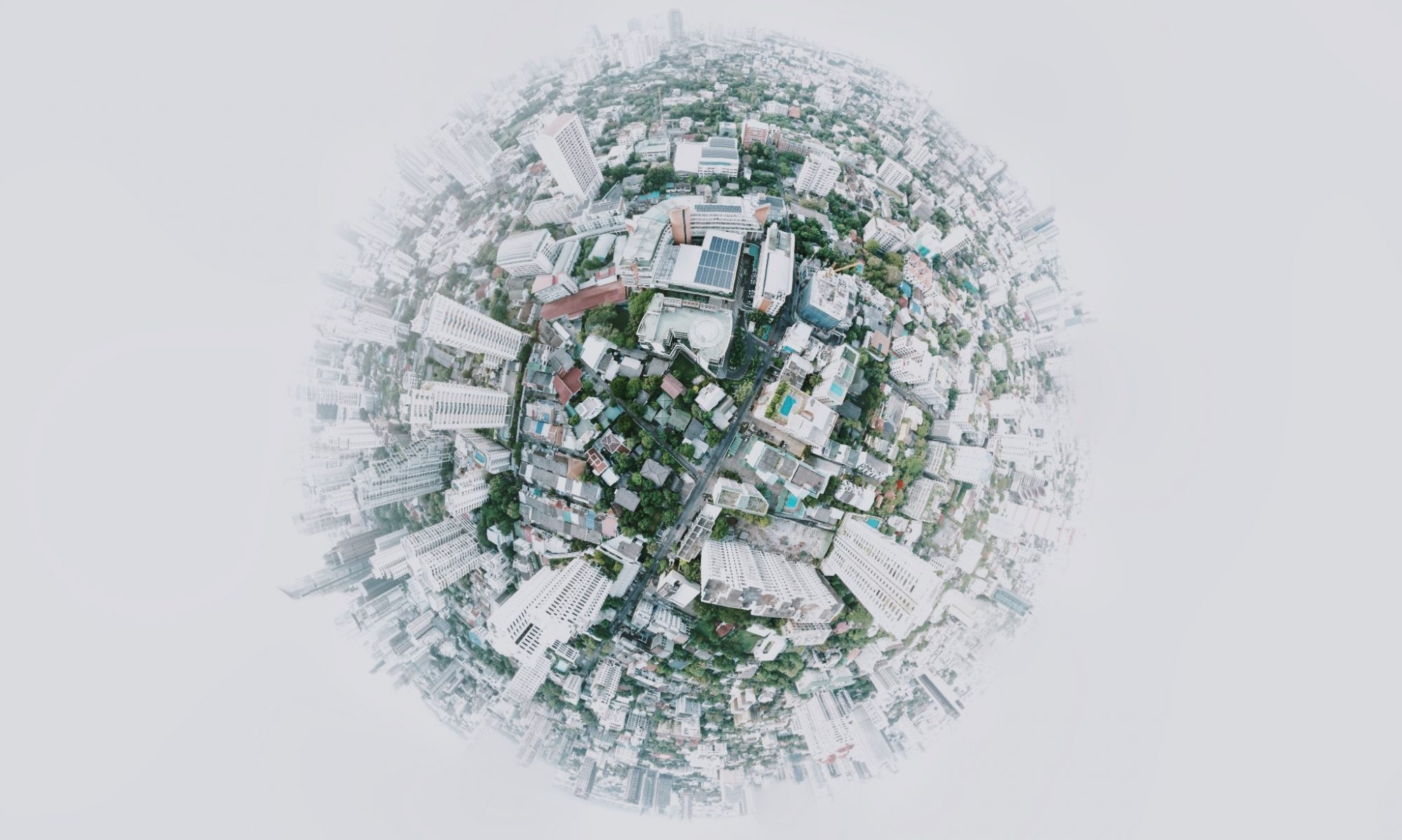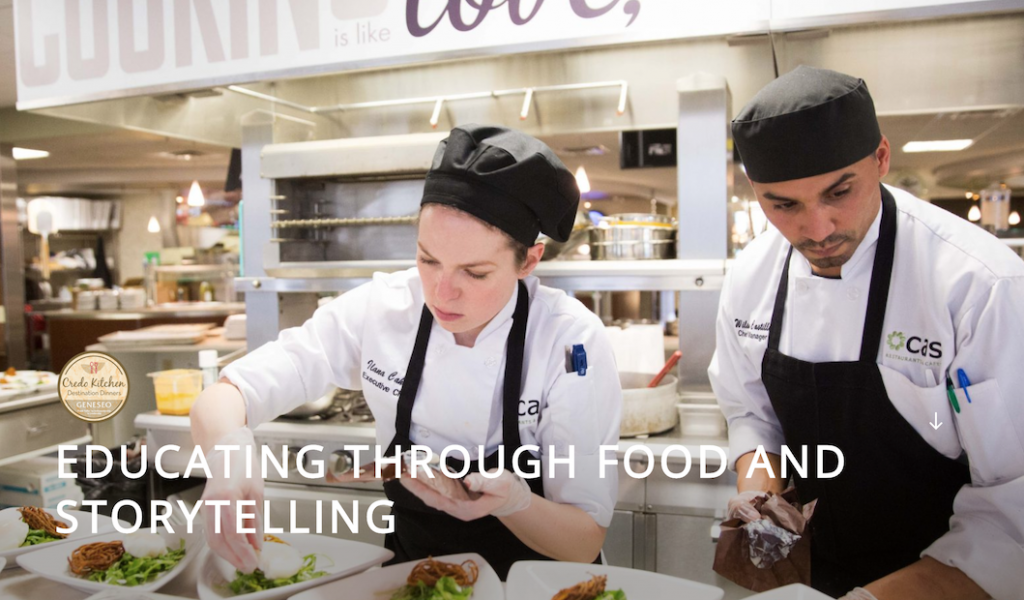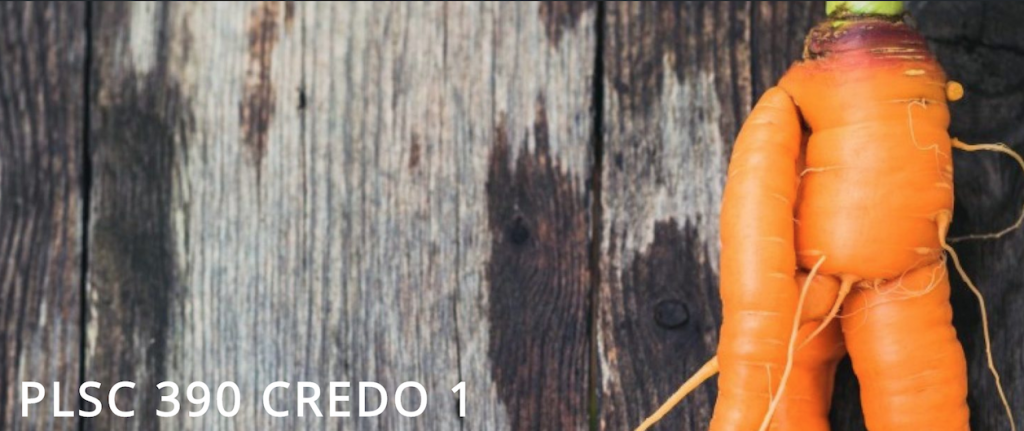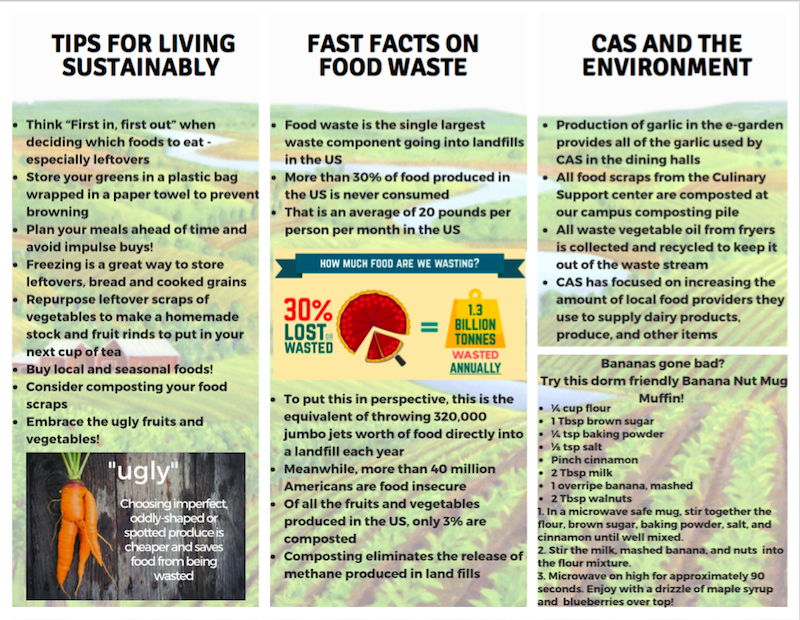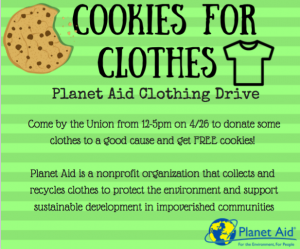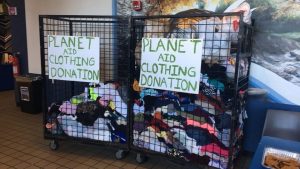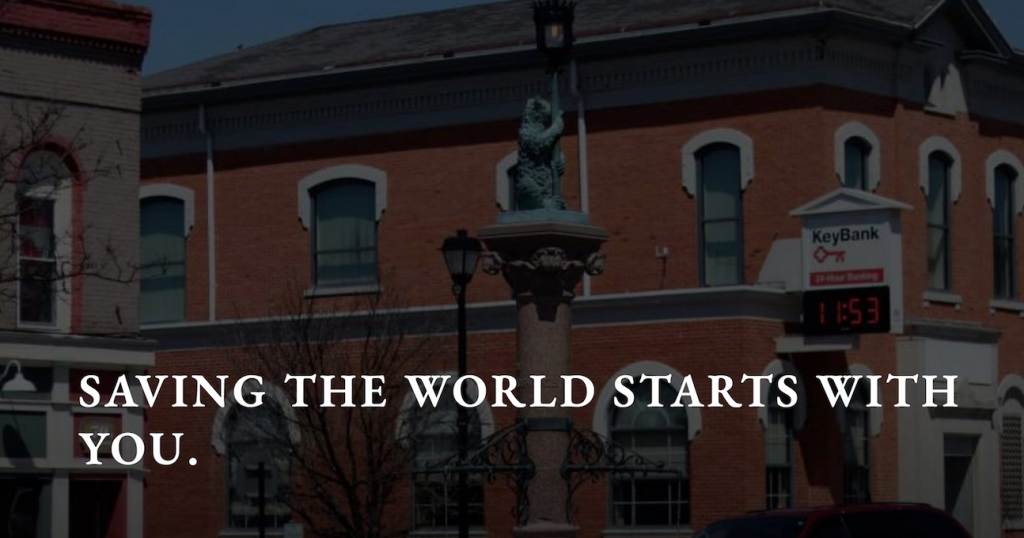The purpose of our community engagement project is to promote education among Geneseo’s youth on environmentalism and sustainability. Our project will use a series of fun activities to tackle topics of green energy sources, endangered species, and the benefits of switching to reusable materials to reduce waste.
We will be working with Declan Dwyer-Mcnulty and the R Kids program to lead a series of activities for seven children from the Geneseo community ranging from grades 4 through 6. The first day we meet with the kids, we will talk with them to establish their knowledge base. The second day we will do an activity on the topic of endangered species. On the third day we will do a field trip down to the e-Garden on campus where we will be teaching the kids about renewable energy, showing them the wind turbine and the solar panels and explaining what these do. Finally, at our fourth and final meeting we will determine to what extent the kids have retained the knowledge we have presented by playing a game in which they have to make decisions about utilizing different sources of energy. We hope that our project will teach the kids valuable lessons about sustainability that they will carry with them to hopefully bring back to their homes and classrooms.
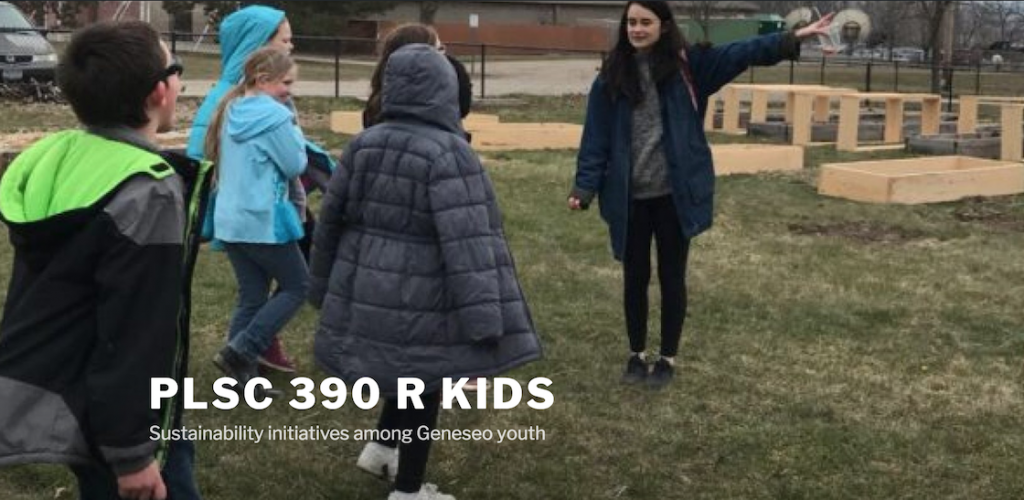
Isabella Vicentini, Jordi Menkhorst, Kyle Chesterman, Megan Metz, Rosemary Carey
